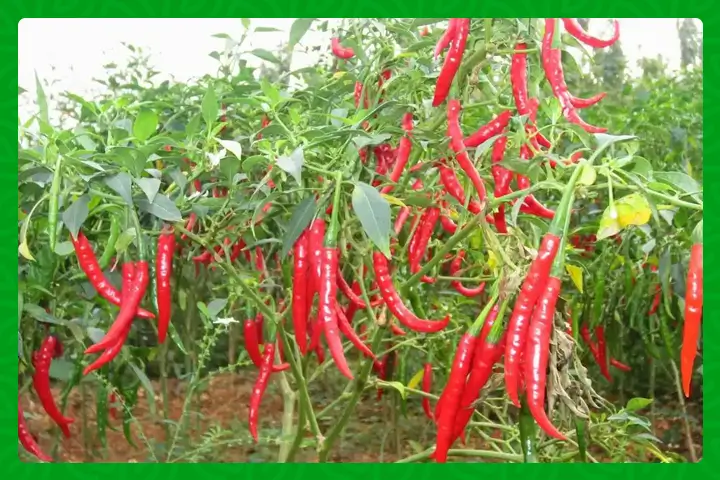
In a triumphant turn of events, Kenya has once again set its sights on the European Union (EU) market for chili exports. After a temporary suspension that lasted two months, owing to phytosanitary concerns in July, Kenya is back in the game with a renewed commitment to meet and exceed international standards. This article delves into the details of Kenya’s impressive comeback, highlighting the collaborative efforts between the Kenyan government and the EU that have paved the way for a brighter, chili-filled future.
Kenya’s Chili Comeback: The interruption in chili exports to the EU in July sent ripples through Kenya’s agricultural sector. Concerns about the quality and safety of the produce had led to the temporary ban. However, the resilient spirit of Kenyan farmers, coupled with the unwavering support of the Kenyan Plants Health Inspectorate Service (Kephis), has turned the tide.
According to Theophilus Mutui, Managing Director of Kephis, Kenya has not encountered any further issues since the suspension. In an effort to solidify the nation’s commitment to quality, Kenya is actively collaborating with the EU to establish crystal-clear export standards. This proactive approach has garnered approval from the EU, leading to the removal of Kenyan chilies from their audit radar. It’s a testament to Kenya’s dedication to providing top-notch produce to its international partners.
EU’s Investment in Quality: Recognizing Kenya’s commitment to addressing phytosanitary concerns, the European Union has stepped up to support the country’s chili industry. In a remarkable gesture, the EU has donated laboratory testing equipment valued at Ksh3.1 million to Kenya. This equipment, known as Certified Reference Materials (CRMs), is meticulously calibrated to EU standards.
Adolfo Cires, the EU’s Manager for Finance and Private Sector Development in Kenya, highlights the pivotal role these CRMs will play. They will enable Kenya to align with Global Good Agricultural Practices (Global GAP) systems, particularly in monitoring pesticide residue levels, thus ensuring compliance with EU regulations. This means that testing for pesticide residues on crops will be not only more straightforward but also more precise, guaranteeing the highest quality produce for export.
A Path to Prosperity: The implications of this collaborative effort are far-reaching. As Kenya refines its export standards and ensures adherence to stringent phytosanitary requirements, its farmers stand to gain immensely. Increased agricultural produce from Kenya is now poised to reach the EU market with ease, marking a significant milestone in the country’s agricultural exports.
Moreover, the investment in quality equipment reinforces Kenya’s commitment to meeting international phytosanitary standards. As Theophilus Mutui, Kephis MD, aptly puts it, this move aligns with the spirit of ‘one test accepted globally.’ It’s a step toward cementing Kenya’s reputation as a reliable and responsible exporter on the global stage.
A Promising Future: The EU is a key player in Kenya’s economic landscape, ranking as the country’s second-largest trading partner. In recent years, Kenya has successfully exported a wealth of goods, including vegetables, fruits, and flowers, contributing significantly to its foreign exchange earnings.
With the conclusion of the EU-Kenya Economic Partnership Agreement earlier this year, which removed tariffs and quotas on nearly all Kenyan exports, Kenya is poised for an even brighter future in the EU market. This agreement paves the way for enhanced trade relations between Kenya and the EU, bolstering the country’s economic prospects.
In conclusion, Kenya’s triumphant return to the EU chili market is not just a comeback story; it’s a testament to the nation’s dedication to quality and its commitment to international standards. With the support of the EU, Kenya is poised for a chili-filled future that promises prosperity for its farmers and economic growth for the nation as a whole.
Stay updated with the latest farming tips and agriculture industry news from Africa by subscribing to our newsletter. Don’t miss out on valuable insights and updates. Follow us on Twitter, LinkedIn, and Facebook to join our farming community and stay connected with us.



















